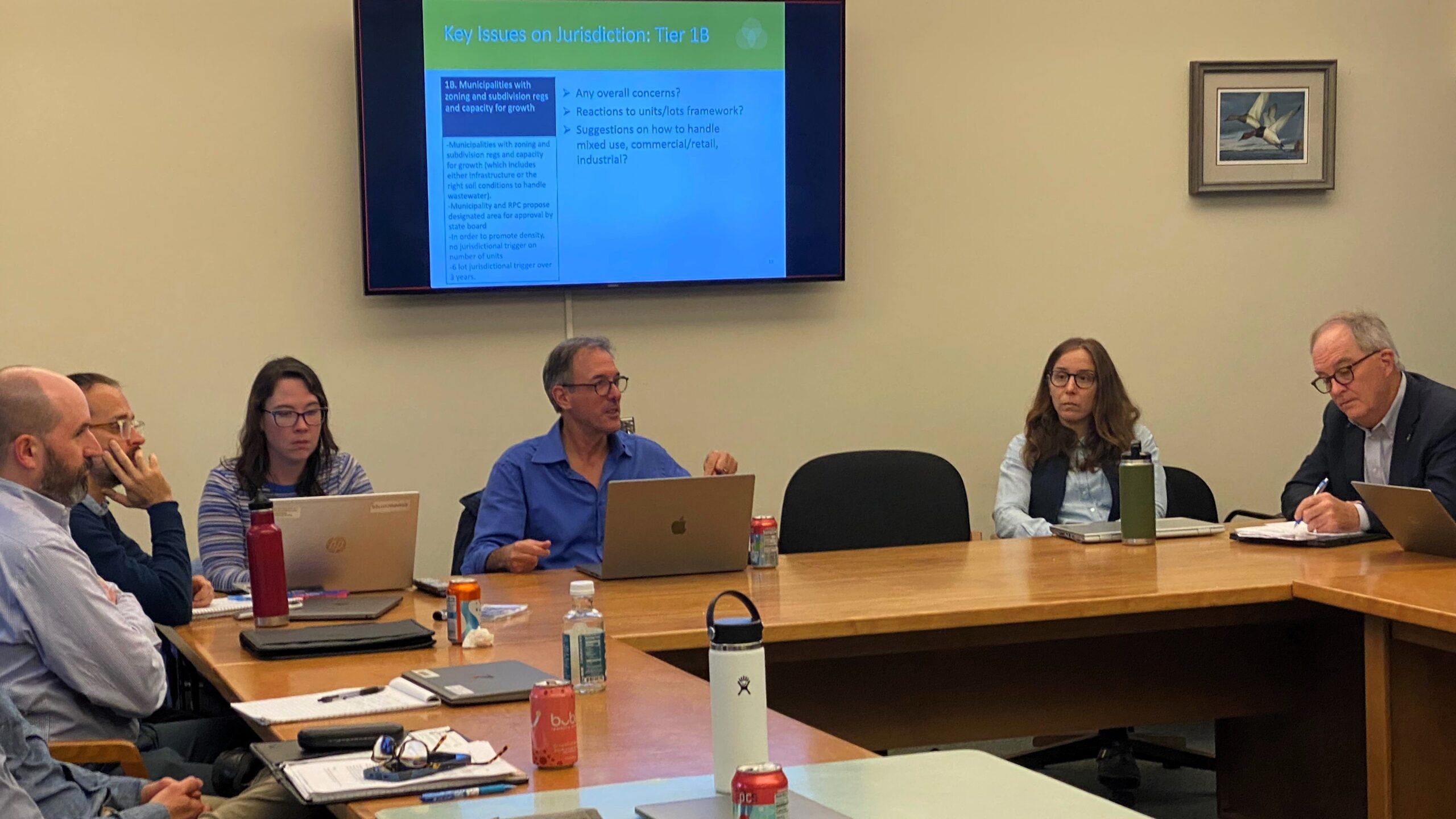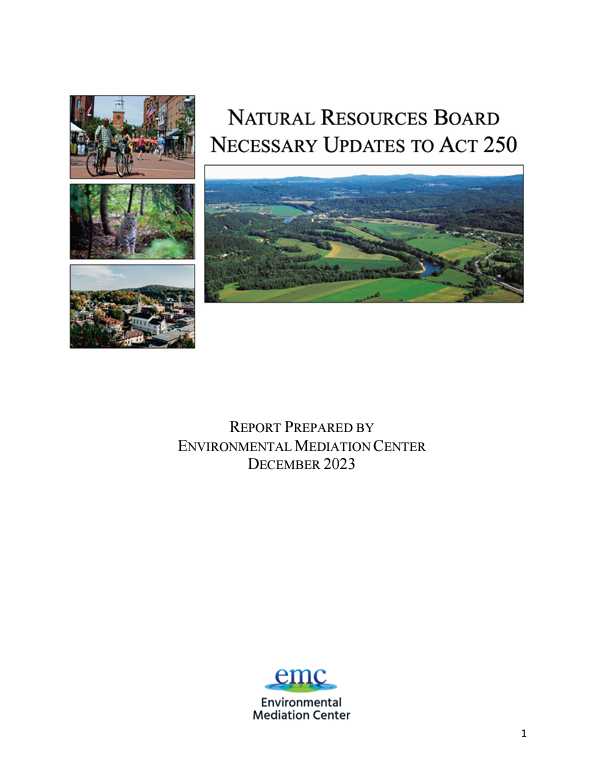Vermont Act 250 Stakeholder Project
Natural Resources Board Act 250 Necessary Updates
Act 250, Vermont’s landmark land use law, was passed in 1970 in response to rapid and haphazard development. Over the years, Act 250 received minor amendments, but a lack of consensus among stakeholders prevented significant legislative changes to modernize Act 250.
Act 250’s challenges included a balancing act between protecting the environment and enabling housing and economic development, minimizing duplicative regulations, enabling smart growth and affordable housing in cities and designated village centers, maintaining rural working lands, and creating stricter requirements for environmentally sensitive areas.
After the governor vetoed Act 250 reform legislation in 2021, the Legislature authorized a grant to hire a consultant team to forge a consensus among disparate groups as a basis for new legislation.
Act 182 (2000) and Act 47 (2023) required The Vermont Natural Resources Board (NRB) which oversees Act 250, to seek input from stakeholders and draft a report to address the following issues:
- Location-based jurisdiction
- Using the Capability and Development Plan
- NRB staffing assessment
- Sufficiency of permit fees
- Effectiveness of permit fees in providing appropriate incentives
- Whether the Board should be able to assess its costs on applicants
- Increasing jurisdictional thresholds for housing to 25 units
- Delegation of administration of Act 250 permits to municipalities
In 2023, the NRB hired the Environmental Mediation Center and work began.
The EMC assembled a team comprised of experienced mediators/facilitators, a former legislator, and national land use policy experts familiar with Vermont to not only facilitate the stakeholder meetings but also build consensus that would enable recommendations on changes to Act 250 by the NRB to be enacted into law.
The EMC and NRB launched the project on June 27, 2023, by meeting with the District Coordinators and District Commissioners followed by the first meeting with the steering committee. During these meetings, the facilitation team provided background information about the project and began initial discussions about Act 250 governance.
The NRB’s report to the Legislature was submitted December 31, 2023.
The bill to reform Act 250 passed the Vermont legislature in May of 2024. Governor Phil Scott vetoed the bill in June of 2024 and within a week, the legislature overrode the Governor’s veto and H. 687 became law.
This webpage served as a clearinghouse for information to stakeholders and the general public about the project. In addition, the NRB’s website contains a description of this project, the legislative mandate, and other material related to the project.
The steering committee working to reach consensus.
Stakeholder Outreach Process
The EMC and the NRB formed a steering committee comprised of leaders who represent a variety of constituencies with an active stake in the Act 250 program: applicants, consultants, attorneys, economic development organizations, housing organizations, municipalities, District Coordinators and Commissioners, environmental advocates, and state agencies. In addition to the steering committee, the EMC met with interest-based focus groups comprised of leaders in each of the sectors listed above. The steering committee members served as liaisons with each stakeholder interest group by relaying feedback from their respective interest groups back to the steering committee. The EMC worked with the steering committee to reach consensus on a series of recommendations to update Act 250.
Public Outreach
Once the steering committee developed recommendations, the EMC facilitated two public meetings to seek feedback from the general public. The steering committee and the NRB reviewed and discussed the feedback from the public and determined whether to modify the recommendations prior to submitting the final report in December 2023.

Final Report
Click here or on the image above to view the final report from the Act 250 Stakeholder Project.
Background Reading Material
Steering Committee
- Steering Committee Role and Members
- Governance 1.0
- Governance 2.0
- Governance Appendix
- Jurisdiction 1.0
- Jurisdiction 2.0
- Capability and Development Plan 1.0
Meeting Notes
Steering Committee
Interest-Based Focus Groups
- Governance and Jurisdiction 1.0
- Environmental Focus Group
- Housing, Economic Development, Environmental Justice
- Attorney Focus Group
- Consultant Focus Group
- Planning and Municipalities Focus Group
- Working Lands
Contact the facilitation team
info@emcenter.org



